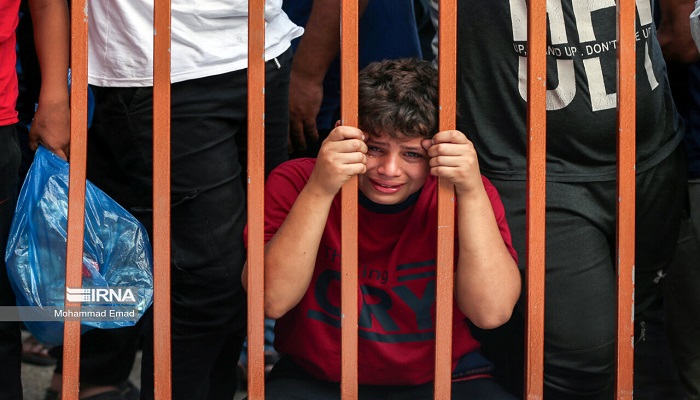PNN – While the Zionist forces are expanding their military operations in Rafah, the Palestinian people are still struggling with hunger and widespread malnutrition in addition to the problem of bombs and rockets.
According to the report of Pakistan News Network, the Guardian English newspaper wrote in a report: Like “Faiz Abu Atiyah” who recently experienced his first and last spring in the Gaza Strip, dozens of deaths of babies and children due to malnutrition have been reported during the past weeks, and this hunger statistic is while the Zionist regime is increasing its presence in the city of Rafah has expanded to the south of the Gaza Strip.
Since the beginning of the war in Gaza, more than 30 children have been registered as victims of malnutrition in this area.
Jonathan Criquex, head of communications for the United Nations Children’s Fund (UNICEF) in Palestine, said: “The current situation in Rafah is a disaster for children, and nearly 30,000 children and infants in the region are facing acute malnutrition.”
He added: According to UNICEF’s experience, in similar crises around the world, children usually do not die in hospitals due to malnutrition and dehydration, but they die at home, on the street or where they are sheltered. This means that the reported deaths of children from malnutrition represent only a fraction of the total loss. There is a concern that there is a significant number of malnourished children in Gaza that are not included in the reported figures.
Read more:
Qatar and Oman demanded to counter the action of the Zionist regime against UNRWA
For months, northern Gaza, cut off from the rest of the region by an Israeli military ring, was hungrier than the south. The aid mainly reached this region through the Rafah crossing with Egypt and the Karam Shalom gate from Israel. UN figures showed last week that humanitarian aid flows to Gaza have dropped by 70 percent since the war began.
Matthew Holling, head of the World Food Program for Palestine, said that much of the food entering Gaza is transported north through the new crossings, which means the crisis there has eased, but people in the south are facing food shortages.
Holling added: “Today, in all areas of Gaza and parts of Rafah, people, especially children, are suffering from hunger, and aid should be resumed in a real and more serious way.”
The US-built floating dock has been damaged by bad weather and is expected to be out of service for at least a few days. The Israeli rocket attack last weekend that caused a fire among the tents of the displaced and left at least 45 dead was a bitter demonstration of the vulnerability of civilians.
Losing access to food and medical care may have been a slower-moving tragedy, but it now threatens nearly everyone in the region. Twenty international aid agencies warned last week about unrealistic humanitarian aid figures.
These groups, including Doctors Without Borders, Oxfam and Save the Children, warned in a joint statement about the increase in deaths due to hunger among the Palestinian people.
Lack of food is not the only danger. A lack of safe water and sanitation means that children are at much greater risk of contracting infectious diseases. The closure of most of the hospitals and the lack of basic medical equipment have all created additional deplorable conditions.

